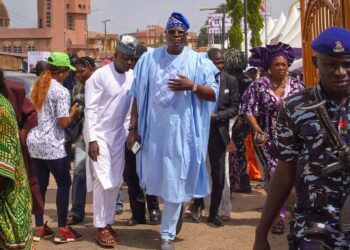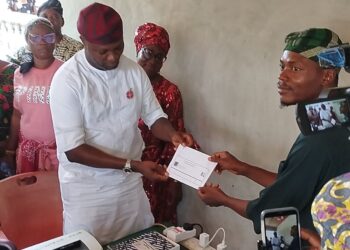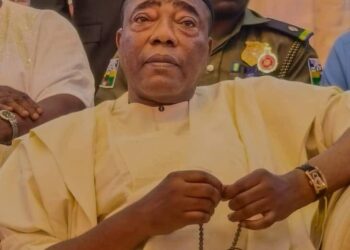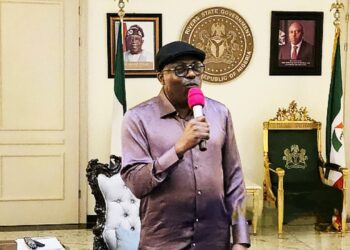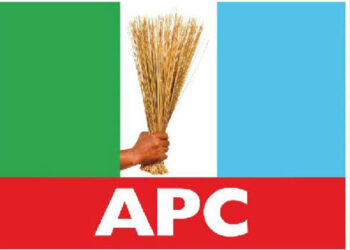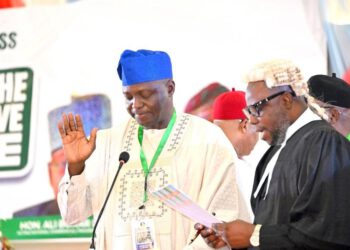Fresh fact has emerged on how assurances by people around President Muhammadu Buhari gave at least six presidential aspirants in the just concluded primary of the All Progressives Congress (APC) the confidence that they were the candidates to beat in the race.
Several efforts to trim down the 23 aspirants that picked the forms for the presidential primary of the ruling party at N100million failed like a pack of cards as they insisted on slugging it out at the ballot box.
After efforts by the party leaders at both the national and regional levels yielded no result, the 22 governors of the party devised a means to trim down the number.
After meeting with the National Working Committee (NWC), they came up with a list of five aspirants to slug it at the convention ground, Eagle Square, Abuja.
However, immediately after the information filtered around that the governors had submitted the names of Vice President Yemi Osinbajo, the national leader of the party, Asiwaju Bola Ahmed Tinubu, the Ekiti State governor, Kayode Fayemi, former Minister of Transportation, Rotimi Amaechi and the Ebonyi State governor, Dave Umahi, to President Buhari, other aspirants kicked.
Daily Trust on Sunday reports that like previous efforts, the governors’ moves collapsed, hence the fierce battle by the aspirants at the poll.
The back story to the insistence by most of the aspirants, it was gathered, was the assurance many of them kept getting, even as they were forcing the ballot that they would be endorsed by the president.
All the aspirants who banked on the president’s purported endorsement were defeated. Tinubu, who was the first to make public his intention to contest the presidency, picked the party’s flag with 1,271 votes.
•Ahmad Ibrahim Lawan
Senate President Lawan was the last to join the race for the APC presidential ticket. His entry into the race ballooned the quest for the North to retain the presidential ticket of the party.
He was regarded as a northern candidate, a claim he punctured during his campaign visit to the president’s home state of Katsina.
Hours before the primary, the national chairman of the party, Senator Abdullahi Adamu, named Lawan as the consensus candidate at a meeting of the members of the NWC) of the party. The purported endorsement was, however, rebuffed by northern governors and other pro-southern presidency stakeholders.
Daily Trust on Sunday had exclusively reported that Lawan was the candidate of the president’s nephew, Malam Mamman Daura, a former director-general of the Department of State Services (DSS), Lawal Daura and Senator Abdullahi Adamu.
Sources in the Villa said the trio had succeeded in securing the buy-in of the president, but the uproar that trailed the national chairman’s endorsement made him make a U-turn.
Daura, in July 2020, while featuring in a BBC Hausa Service interview, said there was no need for zoning the presidential ticket to any part of the country. His statement generated a heated debate in the polity, with many construing it to be the position of the president, a claim that was punctured by the presidency.
With the collapse of the consensus arrangement, Lawan came fourth with 152 votes.
•Rotimi Amaechi
Amaechi, a former minister of transportation, started his presidential campaign subtly through projects he sited in Daura, the president’s hometown in Katsina State.
Top on the list are the transportation university and the Kano-Maradi standard gauge railway line that passes through Daura, among others. To lay the foundation for his campaign, Amaechi was turbaned by the Emir of Daura, Alhaji Umar Faruq, as Dan Amanar Daura (the trusted son of Daura).
Through the president’s nephew and personal assistant, Sabiu Yusuf, popularly known as Tunde, Amaechi reached out to many people around the president.
Tunde, after Mamman Daura, is the most influential person in Buhari’s kitchen cabinet, according to those familiar with the workings of the Villa.
Banking on the influence of Tunde, promoters of Amaechi, until the collapse of the consensus arrangement, believed he was the candidate to beat. Two influential figures had told this paper that Amaechi was the president’s candidate.
The former Rivers State governor came second at the primary after polling 316 votes.
•Yemi Osinbajo
Vice President Osinbajo rebuffed a series of moves to get him to step down for his godfather, Asiwaju Bola Ahmed Tinubu.
There were reports that the South West leaders of the party appealed to him to step down for Tinubu 48 hours before the primary. He, however, insisted on trying his luck.
Star-boy, as he is fondly called by his supporters, came third with 235 votes.
Until the conclusion of the primary, his supporters packaged him as the president’s anointed candidate, and they remained hopeful that Buhari would put a word for him, which never came.
•Senator Godswill Akpabio
The ‘uncommon governor’, turned ‘uncommon senator’, minister and presidential aspirant, relied on people close to the First Lady, Aisha Buhari.
When he discovered the people working for him were unable to turn things around in his favour, he pulled out of the race and supported Tinubu, a development that endeared him to Asiwaju’s supporters.
Following his support for the national leader during the convention, Akpabio has since picked the party’s ticket to represent Akwa Ibom North West at the Senate.
•Ibikunle Amosun
Like Akpabio, Amosun, a former governor of Ogun State, stepped down for the former Lagos State governor during the primary.
His decision to support Tinubu shocked many as his relationship with him, according to APC chieftains in the South West, was not cordial.
Like the others, Amosun hoped for Buhari’s endorsement, banking on their personal relationship. Amosun, who represents the Ogun Central senatorial district at the National Assembly, has a very close tie with the president and his family.
Daily Trust on Sunday reports that the Buharis and Amosuns have a personal relationship built on trust and mutual respect over many years, thus the former governor sees himself as the president’s candidate.
•Onu, Nwajiuba, Mokelu – South East aspirants who misread Buhari’s body language
The trio of former ministers Ogbonnaya Onu, Emeka Nwajiuba and Ikeobasi Mokelu, were said to have misread the president’s language.
They were said to have banked on their closeness to the president to position themselves in the event that he would decide to support power shift to the South East to cool the tempers in the region.
The three South East politicians, therefore, saw themselves as the preferred candidates of the president.
Some of them were also said to have gone to the race with the expectation that in the event that a northerner picked the ticket, they would be considered for a running mate.
At the end, however, the trio recorded abysmal performance during the primary.
While Onu and Nwajiuba polled one vote each, Mokelu, a former minister during the military regime of the late General Sani Abacha, got no vote.



